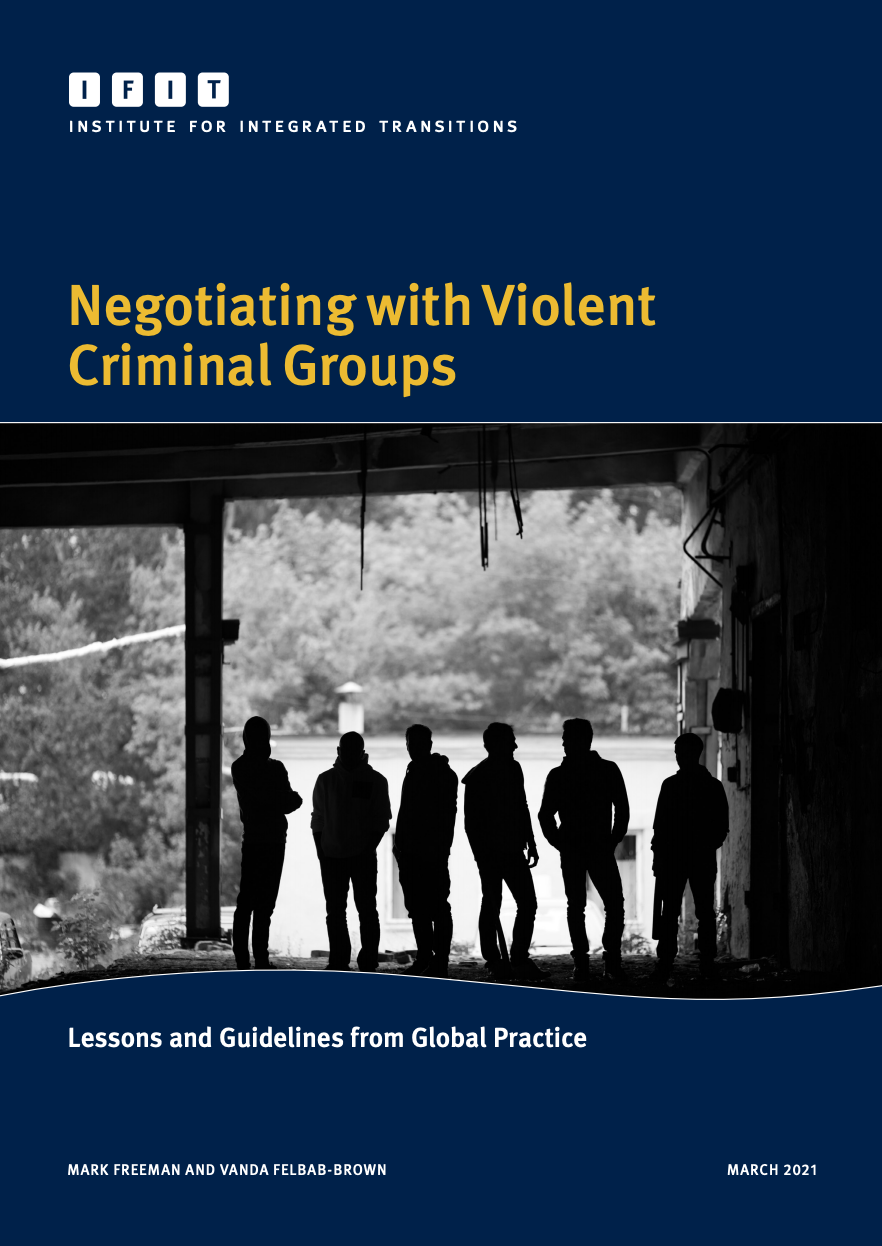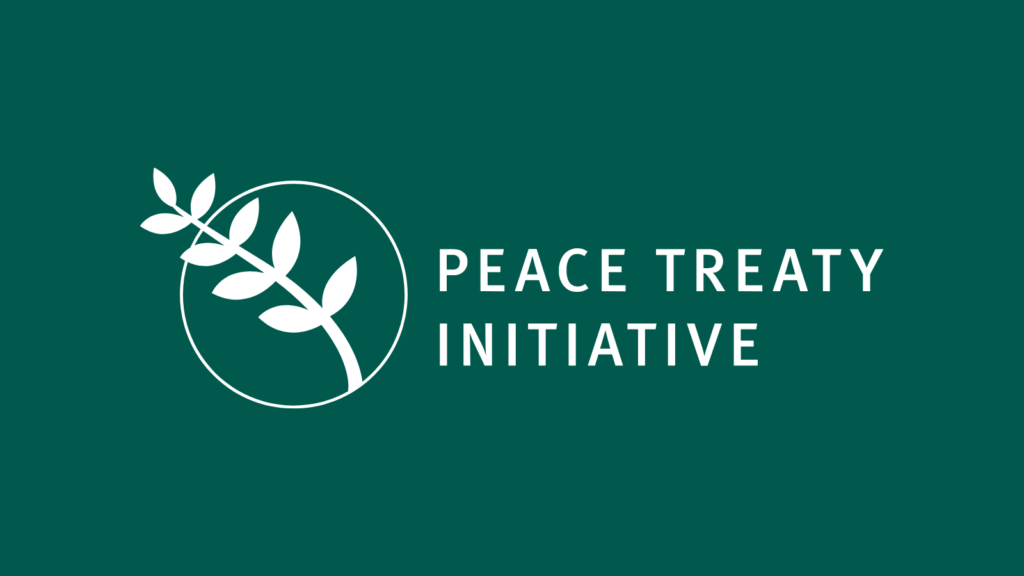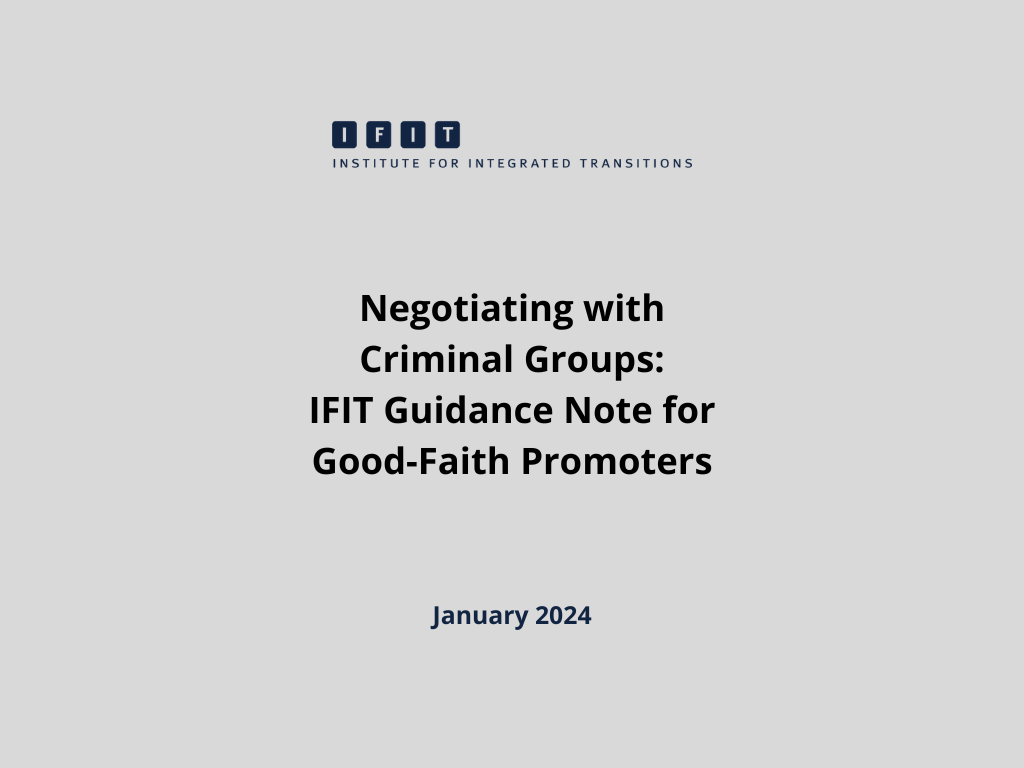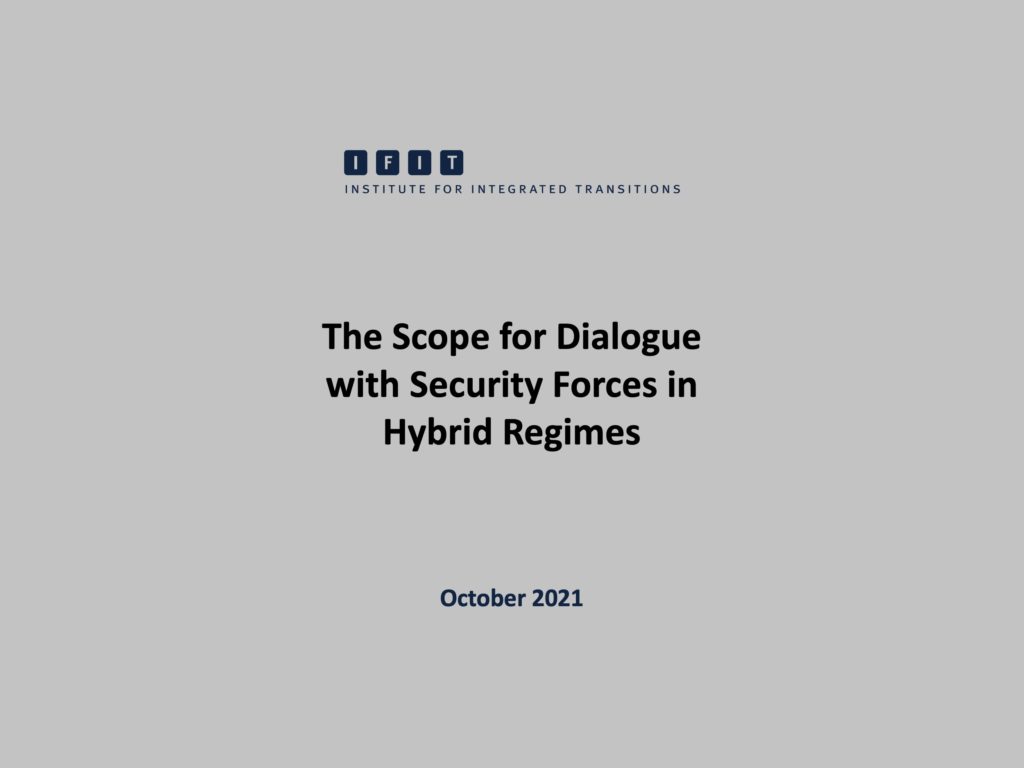Publication
/ Law and Peace
Mar 2021
Negotiating with Violent Criminal Groups: Lessons and Guidelines from Global Practice
Negotiations with violent criminal groups – such as mafias, cartels, gangs and pirates – occur more often than imagined. This publication, grounded in more than three years of in-depth IFIT research and dozens of first-person interviews conducted with actual negotiators, offers key lessons drawn from the most diverse set of negotiations with violent criminal groups ever examined in one place.
One of the prominent discoveries of this study – which centres on negotiations intended to reduce or end violence – is how the best of theory and practice regarding peace talks with militant groups (and associated areas such as transitional justice) appears largely absent from consideration or application in talks with violent criminal groups. The gap is striking and counterproductive, but also heralds an opportunity to achieve greater results in future.
Another key discovery relates to the endgame of the negotiation. With militant groups, the point of negotiations is typically to end the use of organised political violence, by exchanging disarmament (and/or incorporation into the army) for some form of political empowerment and rehabilitation. With violent criminal groups, the endgame is harder to pin down, because their motivations are understood to be mainly pecuniary, leaving it unclear what they could transform into. However, the examined cases suggest that the challenge is surmountable – and under a surprising variety of conditions.
You may also be interested in
Negotiations with violent criminal groups – such as mafias, cartels, gangs and pirates – occur more often than imagined. This publication, grounded in more than three years of in-depth IFIT research and dozens of first-person interviews conducted with actual negotiators, offers key lessons drawn from the most diverse set of negotiations with violent criminal groups ever examined in one place.
One of the prominent discoveries of this study – which centres on negotiations intended to reduce or end violence – is how the best of theory and practice regarding peace talks with militant groups (and associated areas such as transitional justice) appears largely absent from consideration or application in talks with violent criminal groups. The gap is striking and counterproductive, but also heralds an opportunity to achieve greater results in future.
Another key discovery relates to the endgame of the negotiation. With militant groups, the point of negotiations is typically to end the use of organised political violence, by exchanging disarmament (and/or incorporation into the army) for some form of political empowerment and rehabilitation. With violent criminal groups, the endgame is harder to pin down, because their motivations are understood to be mainly pecuniary, leaving it unclear what they could transform into. However, the examined cases suggest that the challenge is surmountable – and under a surprising variety of conditions.





